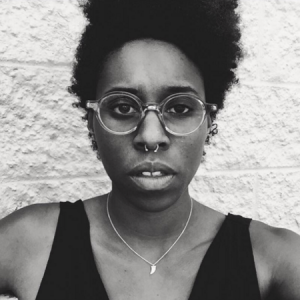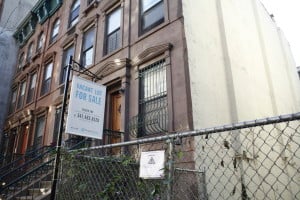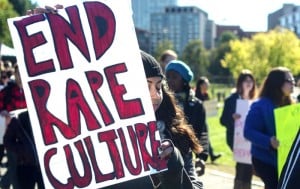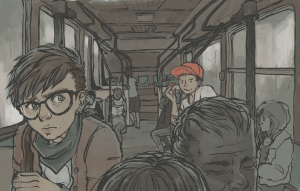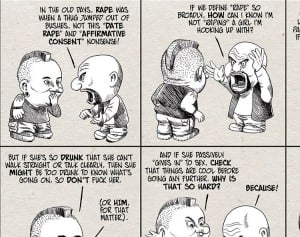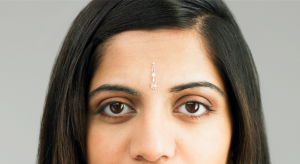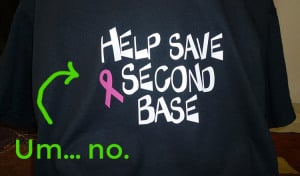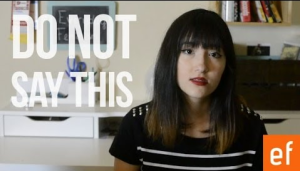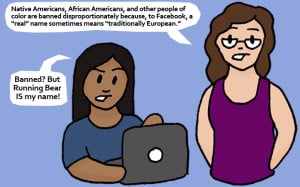This past decade, we’ve witnessed quite a few advancements for gay rights in the US: anti-homophobic hate crimes legislation, the repeal of Don’t Ask Don’t Tell, and nationwide marriage equality, to name a few.
Liberal media often paints these stories as victories — in which the “LGBT community” has won some rights and therefore the violence and stigma against our communities has lessened.
These are supposed to be moments in history that we — those of us who are queer and trans and allies — are supposed to be celebrating.
But behind every rainbow flag, there’s a pot of Goldman Sachs (and a conservative agenda).
Rather than victories, several moments in recent history of the gay movement have been huge losses.
The gay rights movement has won rights and recognition that largely serve the interests of white, wealthy cisgender gay men to the detriment of poor queers and queer people of color, and to the detriment of racial and economic justice more generally.
Again, these are victories for the only most enfranchised gay people. Thus, they are mechanisms for perpetuating injustice.
Major LGBT organizations have claimed for a long time that we’ll start with marriage and then get to everything else, that we need visibility to achieve wider rights.
That trickledown logic is both a lie and a distraction.
Incorporating queer people into institutions like marriage and the military does not decrease queerphobic violence. It does nothing to address root causes of poverty and violence: racial, economic, and gender injustice.
Gay, Inc actually relies on violence against poor people and people of color.
In point of fact: Two of the top three drone manufacturers lobbying in DC are also major corporate donors to the Human Rights Campaign, the largest and most visible gay rights organization. The government and big gay nonprofits can claim to be doing progressive work while actually stripping people, especially people of color, of civil rights, and failing to provide basic needs like affordable housing and healthcare.
“Equality” is not liberation.
So let’s examine a few of these recent gay victories, and how they fail to advance community-wide liberation. We’ll look at the particular institutions those victories are buying into and how each actually contributes to increases in violence and discrimination. These are not progressive policies; they are actively violent.
1. Hate Crimes Legislation
The Matthew Shephard Act, passed in 2009 by President Obama, expanded hate crimes law to protect survivors of homophobic and transphobic violence. It was tacked onto the national military budget bill that year.
In other words, defense spending was increased, and we got a gay hate crimes legislation bill.
The equation is simple: United States legislation = increases in gay rights + increases in militarism.
The Matthew Shephard Act is harmful for two major reasons: First, it uses the name and experience of a white cisgender man to exemplify queerphobic hate violence, whereas 89% of folks killed in LGBT hate violence are people of color, and three-in-four are transgender women.
The brunt of this violence, then, is not directed at white cis men, but at folks who are further marginalized within the LGBT community.
Shifting attention to “gay” as a singular identity, rather than the multiple oppressions that most survivors of hate violence carry distracts from the intersectionalities of race, gender, and sexual oppression.
Campaigns that center white men as the main targets of anti-LGBT violence are missing the point. More than that, they’re wrong.
Second, the Shephard Act puts more folks in prison.
The prison system is not a place where justice happens; it’s the opposite.
The prison system is how the United States continues to dispose of poor people and people of color. 41% of Black and Latina trans women report being incarcerated, more than 13 times the national average. Queer and trans people are also far more likely to be raped in prisons and detention centers, as well as face violence at the hands of police.
Handing more power to the police and prison systems will not make our communities safer, but actually make them more susceptible to sexual violence and criminalization.
Hate crimes legislation ends up hurting even the people it’s professing to protect.
2. The Repeal of Don’t Ask Don’t Tell
In 2010, the United States Congress repealed the Don’t Ask Don’t Tell (DADT) clause, which had originally taken effect under President Clinton in 1994.
Under DADT, lesbian, gay, and bisexual military personnel were told to remain closeted to continue their service legally. DADT’s repeal meant that those service members were allowed to serve openly.
But the major issue with the US military is not its gay-friendliness.
The US defense machine swallows almost two-thirds of tax dollars (while public services are continuously cut) and disproportionately recruits poor people of color in the US to wage war on poor people of color across the world.
This pattern hasn’t ended with the inclusion of LGB people. Machine guns and drones don’t stop targeting civilians because they happen to be queer.
Further, women of color are, compared to white women, vastly overrepresented in military ranks. A study by the Pentagon estimates sexual assault rates in the armed forces occur at the rate of 70 incidents per day. The repeal of DADT had no impact on the military’s daily assault on racial and gender justice; it just gave out brownie points to an otherwise oppressive institution.
As I mentioned before, national gay rights organizing relies on funding from major drone manufacturers, in addition to oil companies and major banks, all of which profit from higher rates of war.
The Gay Agenda™ doesn’t exist outside of the US war machine, but totally within it.
3. Marriage Equality
It’s no accident that the repeal of the Defense of Marriage Act (DOMA) came just a day after the repeal of the Voting Rights Act (VRA). The latter was passed in 1965 to outlaw racial discrimination in voting and repealed in 2013 along with DOMA.
The Supreme Court made it clear: Gay rights are in, and race still isn’t.
Besides its literal juxtaposition to the curtailing of racial justice, however, marriage equality is a very conservative demand.
Dean Spade and Craig Willsie bring together important histories of marriage in the US in their piece ”Marriage Will Never Set Us Free”’ to help us understand how marriage equality upholds existing power structures, instead of challenging them.
Marriage was originally constructed to transfer property ownership across generations (especially for white people). Maintaining that married families are superior to other formations, like single parent households, has been key to demonizing low-income black people.
President Clinton, for example, made huge cuts in welfare programs in 1996 on the grounds that unmarried parents generate poverty. Marriage has also been a strategy of control and assimilation for indigenous people and people of color both in the US and abroad.
Same-sex marriage is not going to magically change the institution of marriage. It instead allows property ownership and resources (including 1,138 federal benefits) to be moved across both gay and straight couples.
An emphasis on marriage over general rights acquisition also narrows our approach to social justice.
As Spade and Willsie point out, while a liberatory approach to healthcare would involve—well—giving healthcare to everyone, a marriage equality approach to health care involves keeping access attached to married couples only. As in, those who already have health insurance are able to share it with partners, but folks who don’t are still out of luck.
The same becomes true for citizenship and immigration status, tax benefits, and so on. People shouldn’t have to be married to access basic rights.
Marriage equality may be a victory for gay rights, but it’s also a victory for the historically oppressive institution of marriage.
***
Including gay people in marriage and the military and using gay rights to strengthen the prison system will not destroy homophobia. These are each institutions that perpetuate and rely on gender and sexual violence.
If your goal is to be in solidarity with queer and trans people, equal signs are not the way to go. Narrow agendas that rely on incorporation and assimilation into those systems create more violence for our communities, not less.
Rather, to support the lives of multiply marginalized LGBTQIA+ folks, we should focus on supporting grassroots anti-violence and anti-criminalization efforts, as well as dismantling (not reforming) prisons, marriage, and the military.
What we should be celebrating (and supporting) doesn’t tend to come in the form of national military or marriage policy. It is everyday resilience, resistance, and struggle.
[do_widget id=”text-101″]
Janani Balasubramanian is a trans South Asian artivist-techie, andone-half of the spoken word duo DarkMatter. Janani likes using words/maps/design to tell nonlinear stories about empire, desire, microflora, ancestry, apocalypse, and the Future. They’re currently working on a novel, H, and a comic collection, SHY. You can read more of their work at www.queerdarkenergy.tumblr.com follow them on twitter at @DarkMatterRage.
Search our 3000+ articles!
Read our articles about:
Our online racial justice training
Used by hundreds of universities, non-profits, and businesses.
Click to learn more







